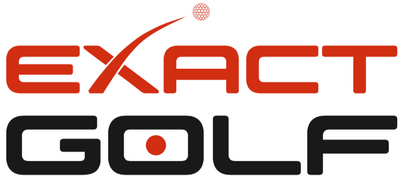Japanese Golf shafts for drivers, woods and irons
There are several reasons why Japanese golf clubs are of higher quality than all others. However, the production of clubheads such as a forged iron is very different from a graphite shaft. One must therefore ask oneself the question whether Japanese shafts are actually also of higher quality and why.
At ExactGolf we offer Japanese shafts for the most part, but not exclusively. There are also shafts from non-Japanese manufacturers like Project X, KBS, Graphite Design, etc. You have to admit one thing: There are many manufacturers who make very good shafts and as a player you should be able to enjoy a wide variety of shafts. Nevertheless, there are several differences that we would like to discuss in more detail below.
Higher quality standards
Here you can see what already applies to the club heads. Japanese manufacturers pay much more attention to quality and produce more precisely. In addition, production parts that deviate even slightly from the standard are excluded. Of course there are differences between the Japanese manufacturers, but generally speaking, shafts manufactured in Japan deviate less from the standard than shafts from China, the USA or other parts of the world.
Longer life span
This is especially true for steel shafts, where even good Western manufacturers are far behind the Japanese manufacturers. There are several reasons why the life of a shaft is shortened. A common form is rust. This depends especially on the steel used. We have been in the club building and repair business for decades and can say one thing with certainty: Most steel shafts from Western manufacturers have a short life span and have to be replaced relatively early. This is simply not the case with Japanese shafts. This factor alone usually justifies the somewhat higher costs of Japanese steel shafts.
Rarely mass production
This is where a quality problem becomes apparent, especially with graphite shafts. Most manufacturers of graphite shafts are designed for mass production and are often manufactured in corresponding "low-wage countries" such as China. Hardly any Japanese manufacturer is really designed for mass and can only produce in small quantities. This is of course noticeable with price, but also in quality. To be honest, we have to say one thing: we have not yet come across a good graphite shaft that is also produced on mass.
The leading manufacturers of Japanese shafts
In the following we would like to introduce the major Japanese manufacturers in more detail and go into their strengths and weaknesses. An important characteristic of Japanese manufacturers is that they are leaders in either steel or graphite shafts, but not in both. This speaks in favor of focusing on core competencies.
#1 for steel shafts: Nippon
Nippon is one of the largest producers of steel shafts in the world and the largest in Japan. Nippon is best known for the Modus line, but also offers other very popular shafts such as the NS Pro GH or the Zelos. We frequently mount Nippon shafts on a wide variety of players and appreciate not only the high quality and consistency, but also the durability.
#1 for graphite shafts: Fujikura
Fujikura is definitely the number one when it comes to graphite shafts, both in the iron and wood range, but also for drivers. The latter mainly thanks to the Ventus, Atmos and the new Motore series. Fujikura also serves the OEM segment with Speeder, for example. These shafts are used by leading manufacturers in large quantities in drivers. At this point we must also point out that these OEM shafts have little to do with the original shafts and are not manufactured in Japan.

More manufacturers of Japanese shafts
Shimada and Oban
Shimada is unfortunately less known, but produces extremely high quality steel shafts. We often use Shimada VWS, S-Lite or Pro shafts. In our opinion these are in no way inferior to the Nippon shafts. Shimada is still one of the few manufacturers who are mainly focused on the Japanese market. So there are for example "Japan only" shafts like the Shimada K's which are not available in Europe and the USA.
Oban is a subsidiary of Shimada and focuses mainly on high-quality graphite shafts. Recently, however, the Oban CT was released, a steel shaft very similar to the Shimada Pro. Oban has a broad fan community, especially in the USA, and it is therefore a wise move to conquer the steel shaft segment with this brand.
Oban produces its graphite shafts both in Taiwan and Japan. There are some differences that we have analyzed in this article. The best known Oban shafts are probably Kiyoshi White and Devotion HB.

Mitsubishi
Mitsubishi also produces very high quality graphite shafts and the best known is certainly the Tensei series. These are available in blue, white and orange. There is also an original and an OEM version. The latter is now also available from the major manufacturers. The Tensei Orange was one of the first high quality high balance shafts that Tiger Woods and Rory Mcilroy also trusted for a while. It is possible to make the clubhead heavy without making the swing weight too heavy.

